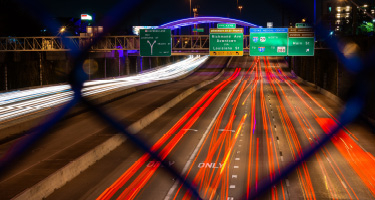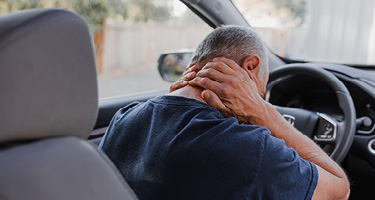The State of Michigan classifies an ORV as a motor-driven, recreational vehicle capable of driving on a range of terrains not limited to roadways and trails. Types of off-road vehicles under this definition include, but are not limited to:
- All-terrain vehicles (ATVs)
- Motorcycles or related 2-wheel, 3-wheel, and 4-wheel vehicles
- Utility terrain vehicles (UTVs) and other 4×4 vehicles
- Amphibious machines
- Ground-effect, air-cushioned vehicles such as hovercrafts
While driving an ORV is a great source of fun and recreation, it is also is a potential cause for great physical harm and even death.
In Michigan, an ORV operator and passenger must always wear a USDOT-approved crash helmet. There is also a requirement that every ORV be equipped with a functional braking system, throttle, spark arrestor, muffler, and functioning lights. There must also be a seat for each person on the vehicle and shared seating is not permitted.
Children under the age of 10 years old are prohibited from driving an ORV. Operators under 16 years old must take an approved ORV safety education course and obtain a safety certificate. All operators under 16 years old must be supervised by an adult while driving an ORV.
In Michigan, there are more than 4,000 miles of state-designed and approved trails and routes for operating an ORV. This includes many scramble areas, county roads, public water surfaces, and even some national forest roads. In addition, there are state designated forest roads for driving an ORV.
Many people prefer to drive an ORV on private property, like their farm or on open land, usually with the permission of the property owner. Occasionally, an ORV is driven on a public road or highway in rural areas as a means of travel or to get from one property to another property for recreational riding. Catastrophic injuries often occur when an ORV is struck by a motor vehicle, like a car or truck driving at a fast speed on a street or highway.
The injuries suffered in an ORV accident are often serious and even catastrophic. Common injuries include:
- Traumatic brain injuries, closed-head injuries, and concussions
- Spinal cord injuries
- Broken bones and orthopedic fractures
- Burn injuries and permanent scarring
- Amputations
- Shoulder injuries, like a torn rotator cup
- Death
There are many situations in which you can sue for an ORV accident in Michigan. You can sue another ORV operator that recklessly crashes into your vehicle or the driver of a motor vehicle that hits your ORV on a public road or highway.
If you were a passenger injured in an ORV crash, you can sue the operator of the vehicle you were riding on if that driver was negligent and caused the accident. You can also sue the operator of another ORV or vehicle involved in the crash.
If a minor is injured in an Off-Road vehicle accident, a parent can sue the owner of the ORV if the child was not properly supervised at the time of the accident.
If a family member was killed in an ORV accident, the surviving family members can file a wrongful death lawsuit. Cases can be filed against the owner and operator of the vehicle, as well as any adults who were negligent in the supervision of minors driving an ORV.
In addition, a lawsuit can be filed against the drivers of any cars, trucks, or other vehicles that cause a crash with an Off-Road Vehicle. In some cases, a property owner can be sued if the crash occurs on private property due to a defective condition or hazard on the property.
For cases involving a wrongful death, the compensation is for the pain and suffering the victim endured from the time of the accident until the death. Compensation is also paid for the loss of the society and companionship suffered by the surviving family members due to the death. Other damages include medical expenses, loss of income and support, and funeral expenses.
You may be eligible for Michigan no-fault benefits if the crash involved a motor vehicle, like a car or truck, on a public street or roadway. Benefits include payment of medical bills, lost wages, attendant care services, and other benefits.
For an ORV crash that occurs on a trail or land with another ORV or even a single-vehicle accident, you are not entitled to no-fault benefits. You can still claim these damages in a civil lawsuit or claim against a negligent operator or person failing to supervise a ride.
If you or someone you care about was injured in an ORV accident, you may benefit from talking to a law firm regarding your case.



















